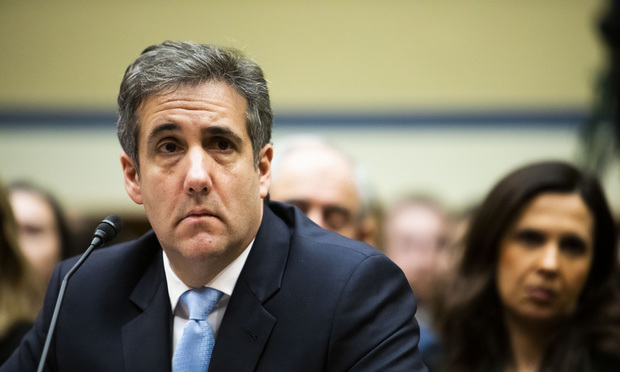A newly released search warrant application shows President Donald Trump was in close contact with Michael Cohen as the attorney was arranging a hush money payment to a porn star who was claiming to have had an affair with the then-candidate.
The document, signed by an unidentified FBI agent, details an October 2016 call between Cohen and Trump campaign spokeswoman Hope Hicks. At some point, Trump was connected into that call.
This content has been archived. It is available through our partners, LexisNexis® and Bloomberg Law.
To view this content, please continue to their sites.
Not a Lexis Subscriber?
Subscribe Now
Not a Bloomberg Law Subscriber?
Subscribe Now
LexisNexis® and Bloomberg Law are third party online distributors of the broad collection of current and archived versions of ALM's legal news publications. LexisNexis® and Bloomberg Law customers are able to access and use ALM's content, including content from the National Law Journal, The American Lawyer, Legaltech News, The New York Law Journal, and Corporate Counsel, as well as other sources of legal information.
For questions call 1-877-256-2472 or contact us at [email protected]

 Michael Cohen. Photo: Diego M. Radzinschi/ALM
Michael Cohen. Photo: Diego M. Radzinschi/ALM








